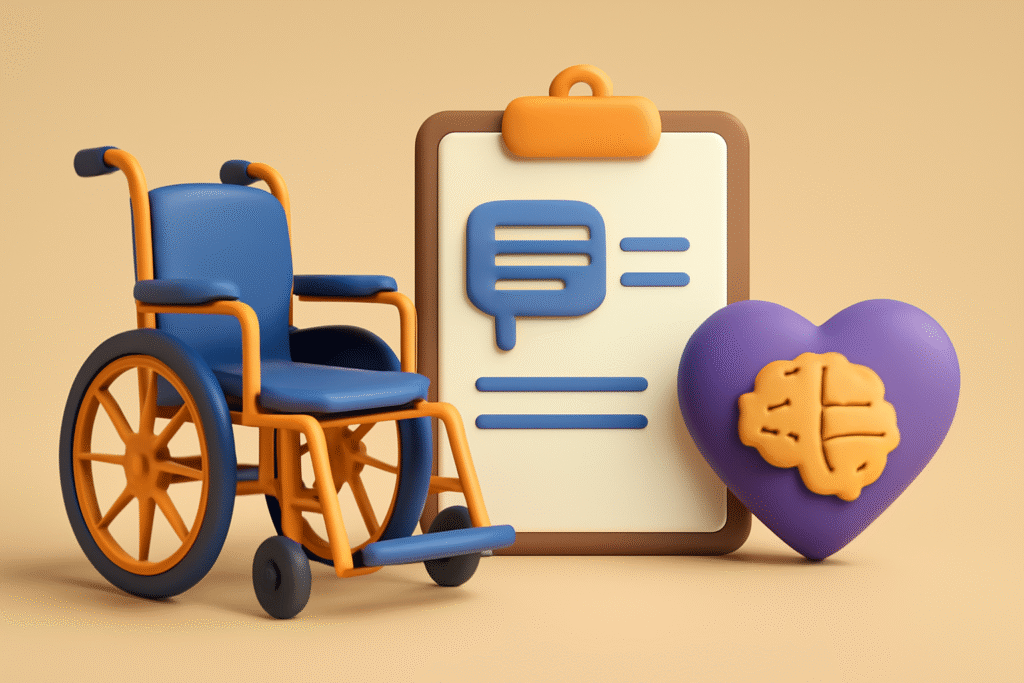As a psychotherapist and counselor who uses a wheelchair, I’ve had a unique perspective on the challenges faced by individuals with disabilities. My lived experience has shaped my understanding of how essential mental health services are, not only for those facing physical or cognitive challenges but for anyone navigating life’s obstacles. Today, on World Mental Health Day, I want to share why mental health services are crucial for persons with disabilities and why these services must be made more accessible and affordable for everyone.
A Personal Journey: From Experience to Advocacy
My journey into mental health counseling didn’t begin with a textbook or clinical training. It began with my own experiences—experiences that allowed me to realize how important it is for people with disabilities to have access to mental health support. As a wheelchair user, I understand firsthand how physical barriers and societal attitudes can have a profound impact on one’s emotional well-being. The stigma, the isolation, the daily frustrations—these challenges are compounded by a lack of accessible mental health resources.
I became a counselor because I saw the gaps in the system. Many people like me face difficulties accessing counseling services, whether it’s due to financial constraints, physical inaccessibility, or the lack of specialized support for disability-related mental health issues. These obstacles can prevent people from seeking help and receiving the care they deserve. My goal as a mental health professional is to ensure that those with disabilities feel seen, heard, and understood, just as I wanted when I first began my journey.
The Intersection of Disability and Mental Health
For individuals with disabilities, mental health issues are often a direct result of the unique challenges they face daily. Whether it’s dealing with mobility issues, sensory impairments, or cognitive limitations, the added physical and emotional hurdles can increase the risk of mental health struggles. However, many people with disabilities do not have easy access to the counseling services that could help them cope with these challenges.
This lack of accessibility is not just about physical space; it’s about the absence of inclusive mental health care that acknowledges the specific struggles faced by people with disabilities. It’s about having professionals who are trained to understand the emotional impact of living with a disability and who can offer support tailored to individual needs. For example, a person who is dealing with mobility issues might also face isolation, frustration, or anxiety, which can significantly affect their mental health. Addressing these challenges requires not just expertise but empathy and an understanding of lived experiences.
Accessibility and Affordability: Breaking Down Barriers
One of the greatest obstacles I’ve witnessed in the mental health field is the inaccessibility and high cost of therapy. Many individuals with disabilities find themselves excluded from the support they need simply because they can’t afford it. Mental health care should be a right, not a luxury, but for many, it remains out of reach due to financial constraints. While there are some low-cost counseling options, they are often limited, and waiting lists can be long, especially in rural or underfunded areas.
We must prioritize making mental health services more affordable. Sliding-scale fees, insurance coverage for therapy, and government-funded programs can help bridge this gap. Additionally, telehealth options have proven invaluable, but they must be made more widely available, especially to those with disabilities who may have difficulty traveling to in-person appointments. In my own practice, I’ve seen firsthand how virtual counseling can eliminate transportation barriers, saving time and effort for clients who have mobility challenges.
Specialized Counseling for Disability-Related Mental Health Challenges
Beyond the logistical issues, another critical component is the need for specialized mental health services that take into account the unique emotional struggles faced by individuals with disabilities. This includes addressing issues like social isolation, discrimination, and low self-esteem—common mental health struggles that can arise from the experience of living with a disability. Therapists and counselors should be trained to recognize these issues and tailor their approaches accordingly. I’ve found that people with disabilities often need a therapist who not only understands their emotional pain but also the lived experience of being a part of a marginalized group.
As a counselor, my goal is to offer a safe, nonjudgmental space where clients feel comfortable expressing themselves without fear of being misunderstood. Therapy should never be a place where people with disabilities feel like they have to explain their condition or justify their struggles. Unfortunately, that’s still a reality for many. We need more therapists who are not just willing but also qualified to address the specific needs of this group.
Making Services Accessible for All
The changes that are needed are not only within the therapy room but also in the systemic structures that govern access to mental health services. Mental health care must be integrated into disability services, not as a separate or secondary option. Mental health should be treated as a central part of overall well-being, just as physical health is. This means that mental health services must be made an integral part of disability care systems, including rehabilitation programs, community support initiatives, and educational settings.
We need policies that mandate accessibility in mental health care, whether it’s ensuring that therapy spaces are wheelchair accessible, that counselors are trained in disability issues, or that costs are kept within reach of everyone, regardless of their financial situation. We need more funding for programs that provide specialized mental health support for persons with disabilities, whether through public health services, non-profit organizations, or community outreach programs.
Conclusion: Creating a More Inclusive Future
On this World Mental Health Day, let’s reflect on how far we’ve come but also on how much further we need to go. Mental health services must be accessible, affordable, and inclusive for everyone, including persons with disabilities. We must break down the barriers that prevent people from seeking help and create an environment where mental health support is available to all, regardless of ability, location, or income.
As a psychotherapist with lived experience, I am deeply committed to advocating for better access to mental health services for persons with disabilities. We must prioritize inclusive mental health care, ensuring that everyone—regardless of ability—has access to the support they need to live a healthy, fulfilling life. Let’s work together to make mental health care more accessible, affordable, and understanding for all people, in all walks of life.



